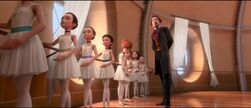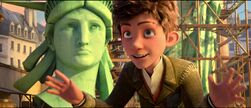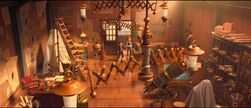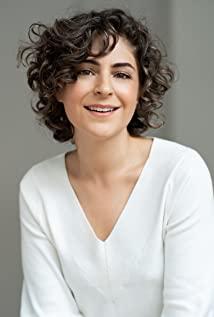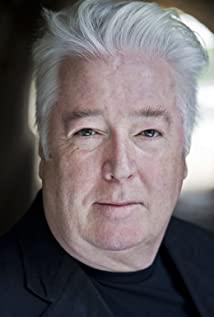The ending of the film is the usual happy ending in Hollywood, and the details of the characters are handled very well. Although it is a cartoon, it can be seen as an interesting live-action movie.
The story of the movie is very simple: an orphan from a dancing family is unstoppably obsessed with dance and ballet because of the drive of family genes, so he embarks on the dream-seeking road to Paris with his childhood sweetheart with the same dream, and then the old-fashioned Dream-seeking journey: There are always one or two people who are extremely bad and become a stumbling block on the road of dream-seeking, and there are always one or two good people like "sweeping monks" who will help you to upgrade continuously, as long as the protagonist does it seriously It will get twice the result with half the effort, crushing a group of supporting characters who have studied hard for many years but have no wisdom. As long as the protagonist does something wrong, there will be a high-level reason to prevaricate it.
In fact, at the beginning, this movie follows this old-fashioned fairy tale routine and is so well-made, I usually give it at least eight points. However, I give this film a maximum of seven and a half points, and I still look at the male protagonist, a man who escapes from the cuteness of science and technology. The reason for the downgrade is mainly because of a small plot in the film that makes me feel a little uncomfortable. The reason why Felixi was able to enter the theater to learn ballet was an impostor, although the impostor Camille in the story did not have a real love for dancing, did not have Felixi's enthusiasm, and Camille Ye is also a rather arrogant and annoying character, and her admission qualifications may be due to Mom's restaurant. But that's not at all a reason for Felice to do such a thing. The film introduces how Camille undergoes high-intensity training every day in order to study in the theater. Even if dancing is not Camille's dream, she does see entering the theater as a purpose to satisfy her mother. , Felicity is stealing the future of others. But after it was finally revealed, Felicity didn't even say an apology to Camille, and her mentor ignored her fault because she was cherishing her talents. Children will naturally have a kind of punishing evil and promoting good when they see this kind of plot in the theater. It's a fun feeling, but it's a bit inconsistent with socialist values no matter how you look at it. No matter how bad the victim is, she is a victim after all. No matter how talented your protagonist is, you shouldn't put on the protagonist's halo at this time.
There is a music box throughout the film, but it does not play a substantial role at all. You don't have to think about it to know that this will be a token for Felicity to recognize her relatives. At this point, I'm also very afraid that the director wants to make a second film, and come up with a cheesy drama about growing up and getting to know each other's relatives. If this is the case, I am afraid that the director is really going to make this cartoon into a "fairy tale"! It's still a fairy tale with a slightly wrong view!
View more about Leap! reviews




